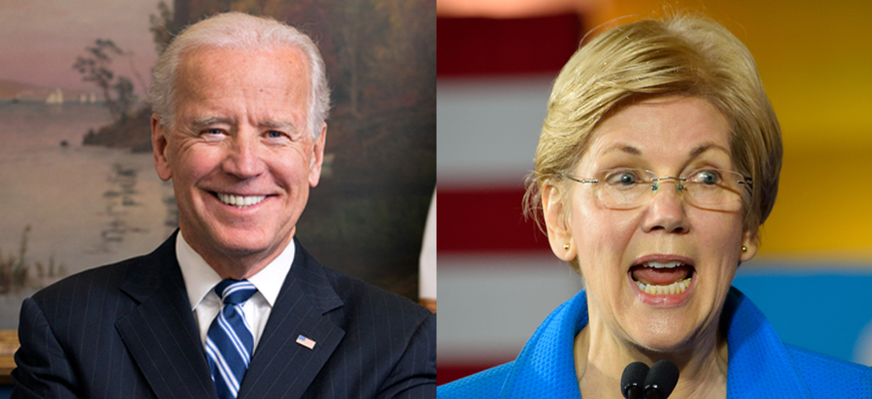Joe Biden is planning a flurry of executive orders if he gains the White House, one of which would cost taxpayers a whopping $1 trillion -- without doing much of anything to help the economy.
Activists like Elizabeth Warren have been pushing for months for Biden to forgive student loan debt via executive action. Her plan would forgive $50,000 per student, and it's been hailed as the greatest thing since sliced bread by in-debt college graduates.
But there's no such thing as a free lunch. If Biden decides to "forgive" student loan debt, someone is going to have to pay for it -- and that someone will be American taxpayers who have been responsible with their finances.
According to some estimates, Biden's plan would cost as much as $1 trillion. Even worse, this forgiveness wouldn't actually do much to help boost the lockdown-ravaged economy, as some have argued. Recent analysis by the Committee for a Responsible Federal Budget suggests the stimulus benefits would be minimal and aimed at those who least need the help, according to Forbes.
First, unlike stimulus checks or unemployment benefits, forgiving student loans doesn’t put money in the pockets of borrowers. Second, most of the benefits of student debt forgiveness would go to those earning higher incomes. According to the CRFB, “student debt cancellation is poorly targeted to those most likely to spend, given that nearly three-quarters of repayments would come from the top 40 percent of earners.”
Finally, student loan forgiveness offers no help to those who have not attended college. A recent study by the Pew Research Center found that the economic fallout from the pandemic has hit lower-income Americans the hardest. Unemployment, for example, has hit those with no college education much harder than even those with some college education.
There's a reason the Founders believed that laws should only be passed by the people's representatives in Congress. Congress is itself inefficient and corrupt, but the laws they pass (usually) have the approval of the American people. Executive actions, on the other hand, can be handed down by a single individual and are much more susceptible to the whims of small minorities of activists.
We need to put an end to executive orders. No president will ever limit his own power, and Congress is too impotent to act as a check on executive overreach. The only solution is to turn to the people and the states, and call the first-ever Article V Convention of States.
A Convention of States is authorized to propose constitutional amendments that limit the power, scope, and jurisdiction of the federal government. As part of this package of amendments, the states could place real, permanent limitations on executive power, including the power to pass edicts in the form of executive orders.
The people have suffered under unilateral power long enough. It's time to change how D.C. operates, and we can do it with a Convention of States.


